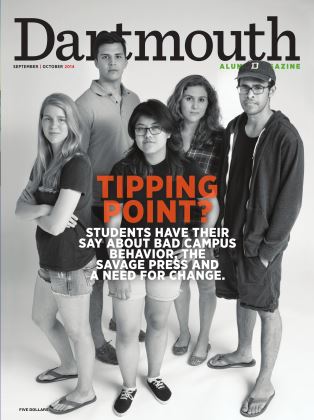More this month from some of our 40 college and grad school educator classmates for their experiences.
From Don Fennessey: "Since 2009 I've taught a maritime staff operators course at the Naval War College in Newport, Rhode Island, year round, mostly officers coming from tactical assignments such as squadrons, ships and submarines, as well as public affairs officers, lawyers and intelligence folks. We give them two weeks of 'Death by PowerPoint' to bring them all up to speed on strategic and operational-level concepts and organizations.
"In weeks three and four we teach them the six steps of the Navy planning process—we give a lesson on how each is done, then ask them to do the steps themselves based on a scenario we give them.
"The students have to react, move ships, change command and control arrangements- just like in real life. It's very challenging and really does set them up well to be able to do their job quickly without a six-month learning period of messing things up as we usually do. We give them a real workout; the students find it very practi- cal and gives them a lot of confidence. Nothing glamorous, but a very satisfying job.
"Trying to figure out when to hang it up for good. Decisions for all of us."
Kip Ault reports: "After 25 years at Lewis & Clark as coordinator of the master of arts in sci- ence teaching program, I recently accepted an early retirement offer. My courses in field geology of Oregon, field natural history, Lower Columbia River ecoscapes, the science of learning science and Costa Rican natural history had a good run. As a professor emeritus I've invested myself in book writing. Getting published in academic jour- nals was never as difficult as publishing science writing for a general audience. I'm working on a book manuscript that takes a skeptical look at the generic abstractions intended to unify the sciences in the next-generation science standards (the published, abridged, journal version is The Ghost Forests of Cascadia: How Valuing Geologi- cal Inquiry Puts Practice into Place').
"I'm more excited about my set of essays that draw upon whimsical children's literature to introduce Darwinian science—fossil stories of limbs, whales, elephants and avian dinosaurs (birds). Of course I make good use of Dr. Seuss, not to mention Morris the (Socratic?) Moose. Pseudo-retirement will take me to Beijing Nor- mal University in October to teach a workshop on 'Concept Mapping in Geoscience Education.'
Real retirement means trying to learn to paddle a sea kayak and play the hammered dul- cimer. The former is lower-back therapy and the latter my attempt to arrest hearing loss. More importantly, both connect me to joy, as do my two grandchildren in Ithaca, New York. Besides, my wife, Phyllis, earned her doctorate in her 50s and is now an educational researcher at the peak of her career. She's carrying the academic torch now."
12 Lummi Key, Bellevue, WA 98006,bill@drivasolutions.com
 View Full Issue
View Full Issue
More From This Issue
-
 FEATURE
FEATUREThe Rookie
September | October 2014 By Matthew Mosk ’92 -
 COVER STORY
COVER STORYWhat’s Going On Here?
September | October 2014 By Jennifer Wulff ’96 -
 Feature
FeatureCan Students Police Themselves?
September | October 2014 By EVA XIAO ’14 -
 Feature
FeatureOff the Beaten Path
September | October 2014 By RIANNA P. STARHEIM ’14 -
 Feature
FeatureNotebook
September | October 2014 By JOHN SHERMAN -
 Feature
FeatureClass Notes
September | October 2014 By DARTMOUTH COLLEGE LIBRARY
Bill Price
Class Notes
-
 Class Notes
Class NotesChicago
April 1953 By BRUCE BENNER JR. '49 -
 Class Notes
Class Notes1941
DECEMBER 1963 By JOHN J. O'CONNOR JR, STEWART H. STEFFEY -
 Class Notes
Class Notes1955
SEPTEMBER 1987 By Lynmar Brock Jr -
 Class Notes
Class Notes1960
NOVEMBER 1981 By Melville Straus -
 Class Notes
Class Notes1943
Jan/Feb 2006 By Pres Brooks -
 Class Notes
Class Notes1921
DECEMBER • 1986 By Russell Bailey







